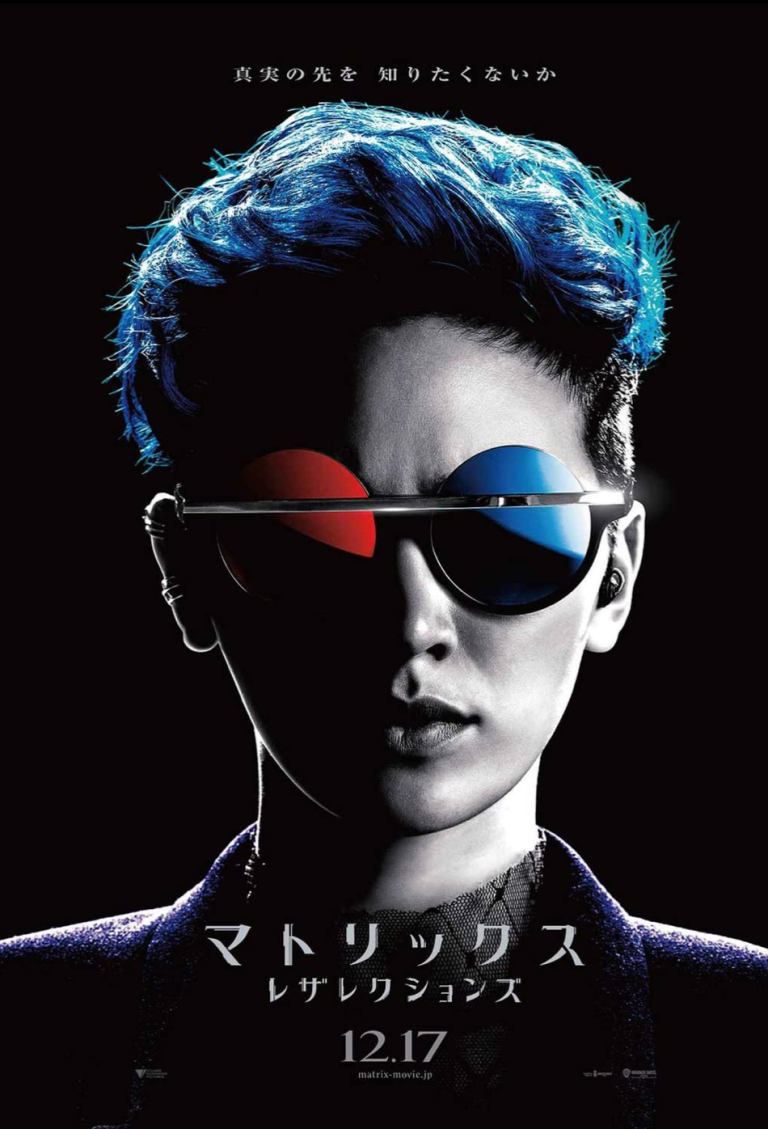
Synopsis : To find out if his reality is a physical or mental construct, Mr. Anderson, aka Neo, will have to choose to follow the white rabbit once more. If he’s learned anything, it’s that choice, while an illusion, is still the only way out of — or into — the Matrix. Neo already knows what he has to do, but what he doesn’t yet know is that the Matrix is stronger, more secure and far more dangerous than ever before.
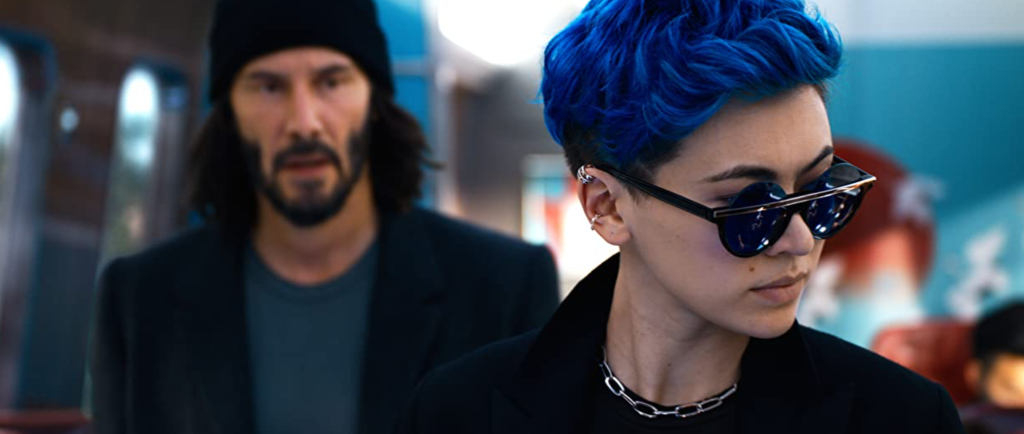
Q&A with Actress Jessica Henwick on “The Matrix Resurrections”
Q: When was the first time you watched the Matrix films?
JH: I was probably 7 years old when the first one came out, so I didn’t watch it in a theater. But I remember I was in Malaysia, I must be 12 or 13 years old when the second one came out. I tell everyone in interviews that I found a VHS tape because I didn’t want to say that it was a pirated DVD. But it was one that I bought out of the back of a car.
I found it, and noticed it had “The Matrix,” the Matrix picture from the first film — such a big pop culture moment. I knew that I wasn’t supposed to watch it, but I really wanted to. I was still too young, and it scared me. I was so afraid of my mouth getting so numb, and I was so afraid — like I never contemplated that your belly button was an orifice. So the idea that a robot would crawl in there gave me nightmares, and it really stayed with me. That’s not the story you were expecting, was it?
Q: Not at all. But when you were offered the role…you initially turned down the role…
JH: I was in a weird time where I didn’t know if I wanted to act anymore, and I was on this hike. Then more than a month later, I finally got home, and decided, you know what? I’ll keep acting. I was lucky that Lana [Wachowski] hadn’t found anyone, and they asked me if I wanted to make a self-taped video.
Q: You have a lot of screen time in this film, almost as good as the lead?
JH: No! No. There can only be one lead in “The Matrix”, and that’s Neo, and his hair.
Q: That’s fair. But then let’s talk about your hair — your blue hair.
JH: Yes. Well, it was really intentional. Lana doesn’t tell you anything about what’s going on inside her head. She showed me a photo of this shade of blue that was really blue and I was like, “This is what it has to be.” Obviously I know, and you guys all know, okay, red, blue, it’s very symbolic in the show.
She would not tell me why I had to have blue hair, though. Like it would make more sense that I would have red hair. I didn’t know if she just wanted to throw people off, or if she… I guess because that’s my hair in the Matrix and I’m representing the Matrix in that way. I don’t really know why she wanted it blue. There was no conversation about it.
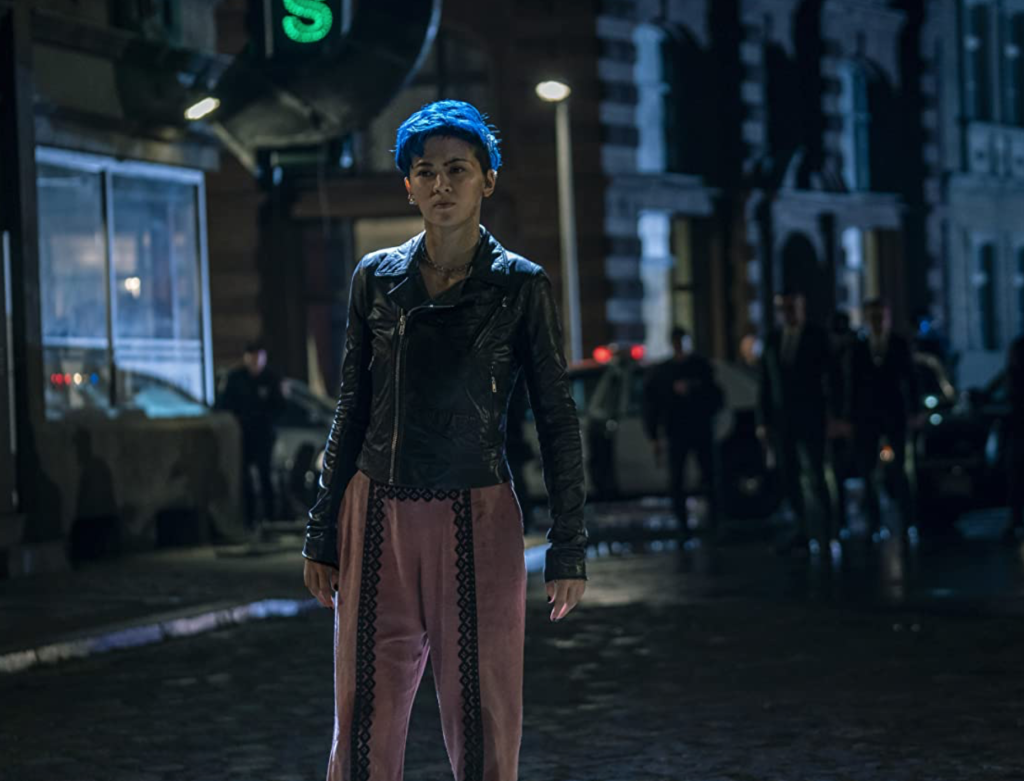
Q: Did you keep your hair color when the Covid hit the production?
JH: No, it just seemed like that. Because filming was supposed to take four months, and then with Covid ‑‑ I was on the project for about a month (before the COVID hit our production), it was almost a year of my life (for this project).
Q: So you kept the blue hair for a long time.
JH: Yeah, I was blue haired and then for a while I went back to normal. But that was just for the weekends for myself, and then I would go back to blue hair for work.
It was meant to be a fast shoot, and then obviously we got shut down. We were in San Francisco when “Patient Zero” happened. We got out two days before they locked down. We flew to Berlin, and were there one week before they locked down. We all went home for three months, and then we went back and finished the film. We were the last film to shut down and we were the first film back up. So we were really creating the blueprint that we’re now seeing if you work in film.
Q: How did that work in terms of insurance?
JH: It was interesting because I guess, the insurance [people] said, “You can’t, it’s too dangerous to force the cast and crew to come back.” Everyone was given a choice. All the cast said, “Yes,” but some of our crew left. Our original DP, John Toll, never came back after the break.
We all flew in and basically operated in these small groups where we would be given a lanyard of a certain color and you could only hang out with people with that color. You would go to your house and do nothing at the end of the workday. You were not allowed to go out; you could only fraternize with the cast and crew. But only a select amount of them.
It was kind of isolating. Honestly, it was really sad and very odd, but no problem working. It was a fractious way to make a film, separating everyone like that. It’s not really how life works.
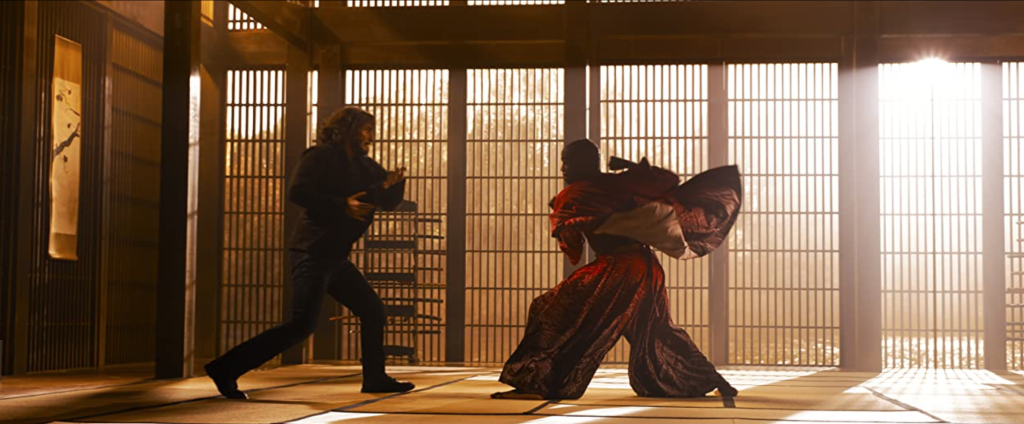
Q: In this film, there were several different fighting styles like Aikido and Taekwondo. How do you work with a fighting choreographer, especially during Covid, when you are not supposed be so close to each other.
JH: When I signed on…The great thing about Bugs and about the Matrix is that it doesn’t have to be a traditional form of fighting, whereas my experience is quite traditional. So I wanted it to feel like it’s an amalgamation, and I truly think that I was only ready to do this because of my other experiences on the other projects.
So I got the role, and the first thing they make you do is a stunt assessment. I go to L.A., and go into an empty warehouse near LAX and Chad [Stahelski] is there to help you. Chad is Keanu’s original dub voice in the first Matrix film. You probably know him now because he’s the director of the John Wick films, which has the craziest origin story.
But he was there, and watched me throw punches, kicks, and how much choreography can I land. Okay, now do the whole thing in reverse. Now do the whole thing on your right side. Basically he assessed me, and then he said, “I think we should go through this really visceral, fast, tension style now.” So I trained like that.
I get to set. Lana doesn’t like making decisions before we get to set. So she would just rewrite the choreography on the day. So I had to train three months to learn this fight, two months to learn that fight. She was like, “How about you doing kickboxing there?” And thank God, I knew how to do one, because they would just change their minds on a whim. Honestly, I think it was the hardest training I’ve done, not physically but mentally.
When we got shut down in Berlin, Lana fought so hard to get us to keep going. She even contemplated buying out the insurance herself and we would film with a skeleton crew — about six or seven people — and we would all be there, off insurance, doing it on our own in our spare time. Like, in our spare time, not going through the system, but basically renting out the idea from Warner Brothers. Warner Brothers said no.
She was so bereft that she rang us all to gather us together and she Facetimed us and said, “Maybe this is it. Maybe this is the legend of “Matrix 4” and we just won’t come back. I don’t know if I want to come back. Maybe “Matrix 4” will just be this mystery of all this footage that no one will ever get to see. And that’s what our destiny is.”
Of course, I had to cut up all my f***ing hair and I was like, “What? No!” The hardest thing was training for three months and then I was sent home. Morale was so low and we didn’t know if we were going to come back, and we didn’t know if Lana wanted to keep directing the film. They can’t do it without her because she owns the rights. She owns the idea. So training with no goal was difficult. I think I’m the only cast member that solidly trained in the break— myself and Keanu, of course.
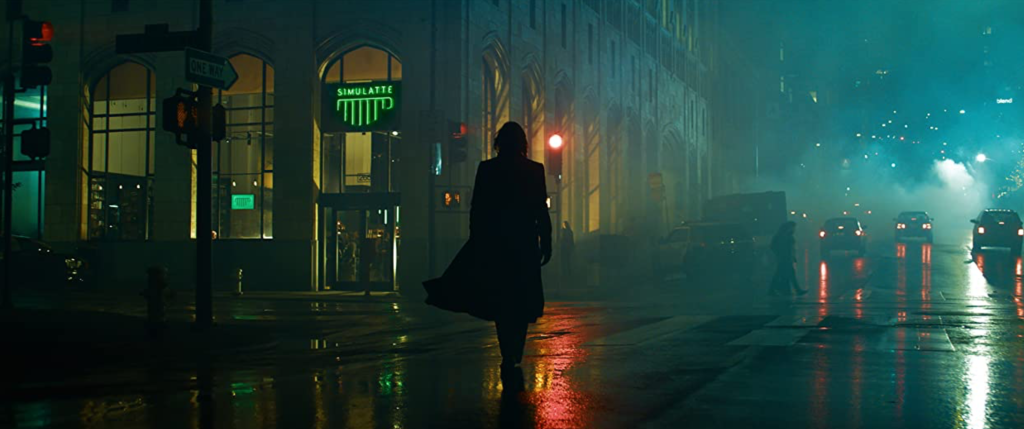
Q: That was incredible. One of the other things that struck me about this film is how mind-blowing the visuals are and the concept of the video game world. It was really another level of like, mindf***ing. What was that like for you? When you read the script, and when you were doing it?
JH: Those are my favorite scenes, honestly. When I was reading it, I was cracking up. I couldn’t believe that she’d gone and punked Warner Brothers — to make jokes about Warner Brothers. Because it was so bold, and was such a commentary, obviously, on the original film, the response to the film, and all those discussions were real discussions that she had.
She would go into rooms and the execs would tell her what the Matrix was and what they thought she needed to do. You know, she had a million offers over the years to make the full film and she turned them all down. But that’s what the meetings were usually like.
Q: Well, she gets to show it all.
JH: Such a middle finger to the industry, I loved it.
Q: Where are we these days, especially for women filmmakers? Talk about your filmmaking career. This wasn’t on the list of what you were going to talk about, but wh about your what about your short film, “Bus Girl.”
JH: Oh, my short! I’ve been acting for 14 years, I think. I’m still at a very young age, but two years ago, part of that questioning about my career was that I wanted to stop and take a second, and get rid of all the noise which I just talked about. I wanted to make sure that I was doing this because I wanted to do it and not because I was used to it.
It’s really easy in the Hollywood system to lose track of that. When I came out of that hype, I was like, “ I just want to tell more of my stories.” I’m really kind of jaded with the kind of stories that I read.
We’re at a completely over-saturated point now. There has never been more TV series and films so easily available and there’s so much regurgitation of the same ideas, especially women-developed ones available for women, women of color and women of a certain age as well.
I love that this film, to me, is a love letter to Trinity, and I think if it were another filmmaking bloke, it would be like: “Hmmmm, let’s cast a younger Trinity.” But Lana obviously would never have done that.
This is all to say that I don’t like complaining about things, I like just doing it instead. Just like trying to be a part of the change. [My film] is just a really small thing; I directed my first short film. I’ve written before, and I’m sort of in the writing system now with two companies.
But this was my first real go at directing. It’s called “Bus Girl”. The lead was meant to be Jessie Mei Li. A lot of people look at it and go, “Oh, another actor directing themselves, a vanity project.” I didn’t want to be in it. And then she had a schedule — she’s filming this Netflix film “Havoc” — because of Covid.
What the studios are doing now is putting everyone “in holding.” So it doesn’t matter if you’re filming or not, they just say, “We’re going to pay you to stay home and do nothing because we want to work with you.” She wasn’t even filming on that film yet, but Netflix just went nuts, so she’s not released.
At the very last minute I had a change of plan. The short I made is shot on a Xiaomi phone and they’re funding the project.Xiaomi basically said, “It’s you or it’s not going forward and we’ll pull the plug.” So I had to do it, which was a challenge.
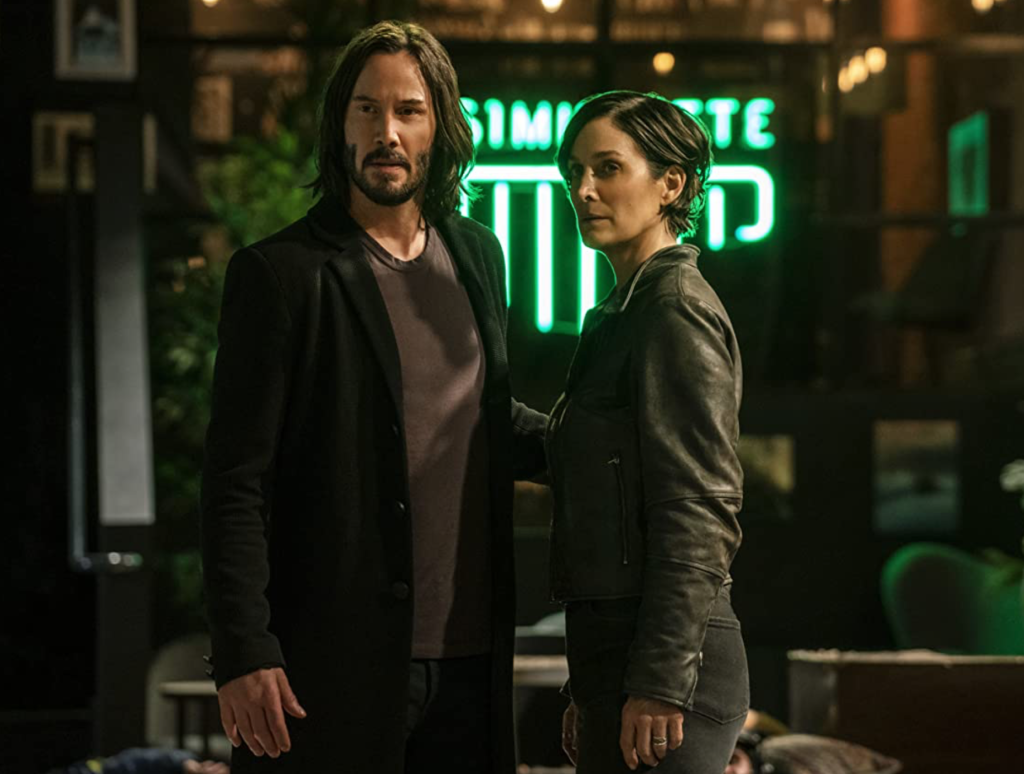
Q: How was directing yourself?
JH: It sucks. I hate it. I’m never doing it again. I’m directing, but I’ll never…I wouldn’t direct myself again until I found a producing partner or a First AD who I felt creatively was really symbiotic.
Because the issue was, I first would call “action,” we’d do the scene, I’d call “cut” in the scene and I would walk over to a phone which was my monitor. We had like six phones, right? The phone we were using, we were pulling focus on another phone, and then we had phones set up for monitors, and we had the feed-camera phone.
So I go to look at this phone, this tiny phone, to see the scene. I would give everyone else direction and then I’d go, “Oh, shit. Okay, I need direction, too. What should I do? Just do this.” Then I’d go back into the scene and forget about all that and try and be in the moment.
I don’t understand how people like Phoebe Waller-Bridge or Michaela Coel, I don’t know how those women do it, they’re amazing. Next up is just directing straight, and I don’t want to be in it.
Q: I’ll be excited to see it when it comes out. As we wrap up, would you talk about Asian representation in Hollywood and how it’s changing — even with this film — with both you and Keanu at the helm?
JH: I’ve never brought this topic to Keanu, but I should have done it. I’m curious to hear his thoughts on it because he’s so quiet and so private.
Q : He’s so mysterious?
JH: It’s funny, because when I was auditioning, it was open ethnicity, right? So I was going up against all the ethnicity. On another mainstream Hollywood film, you would know, “Oh, an Asian lead already? And you’re not going to get it. There’s only room for one.” The room-for-one mentality. But no, Lana didn’t seem to care. Not only that, but we also have Priyanka [Chopra Jonas].
If you look at the first Matrix film, it was ahead of its time, and it was diverse. She has always been forward-thinking. Isn’t it crazy to think that Will Smith auditioned for Neo and turned down? Isn’t that insane? What a different film this would be. Totally. It would not be the same.
I can’t remember thinking that anyone would be Morpheus other than… [An audience member shouted, “Val Kilmer”]…
Well, Will Smith and Val Kilmer, that would have been a different film… No disrespect to Will Smith or Val Kilmer… It just can’t be… But it’s amazing to be a part of a film that is so diverse and has had [such] a history.

